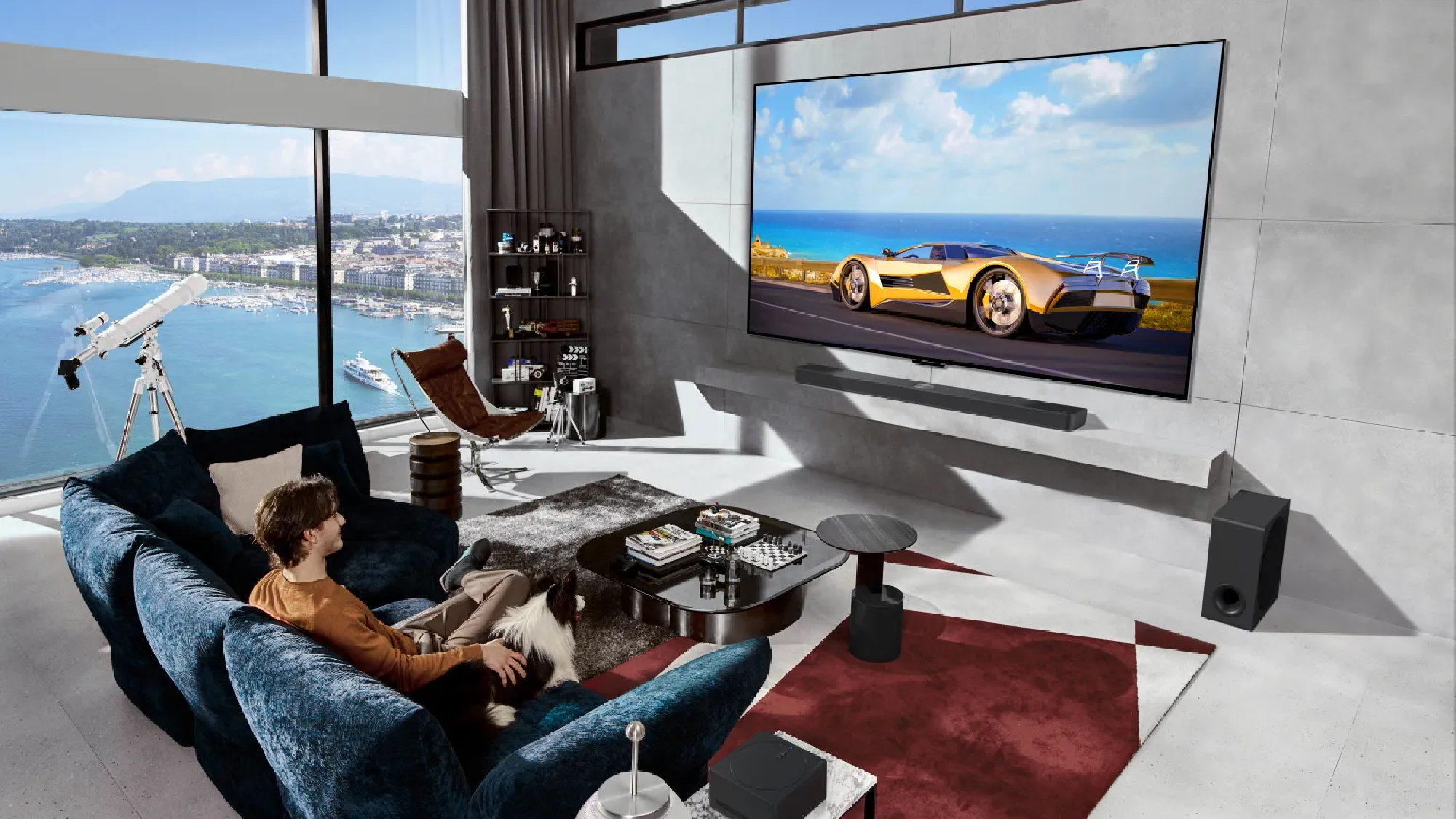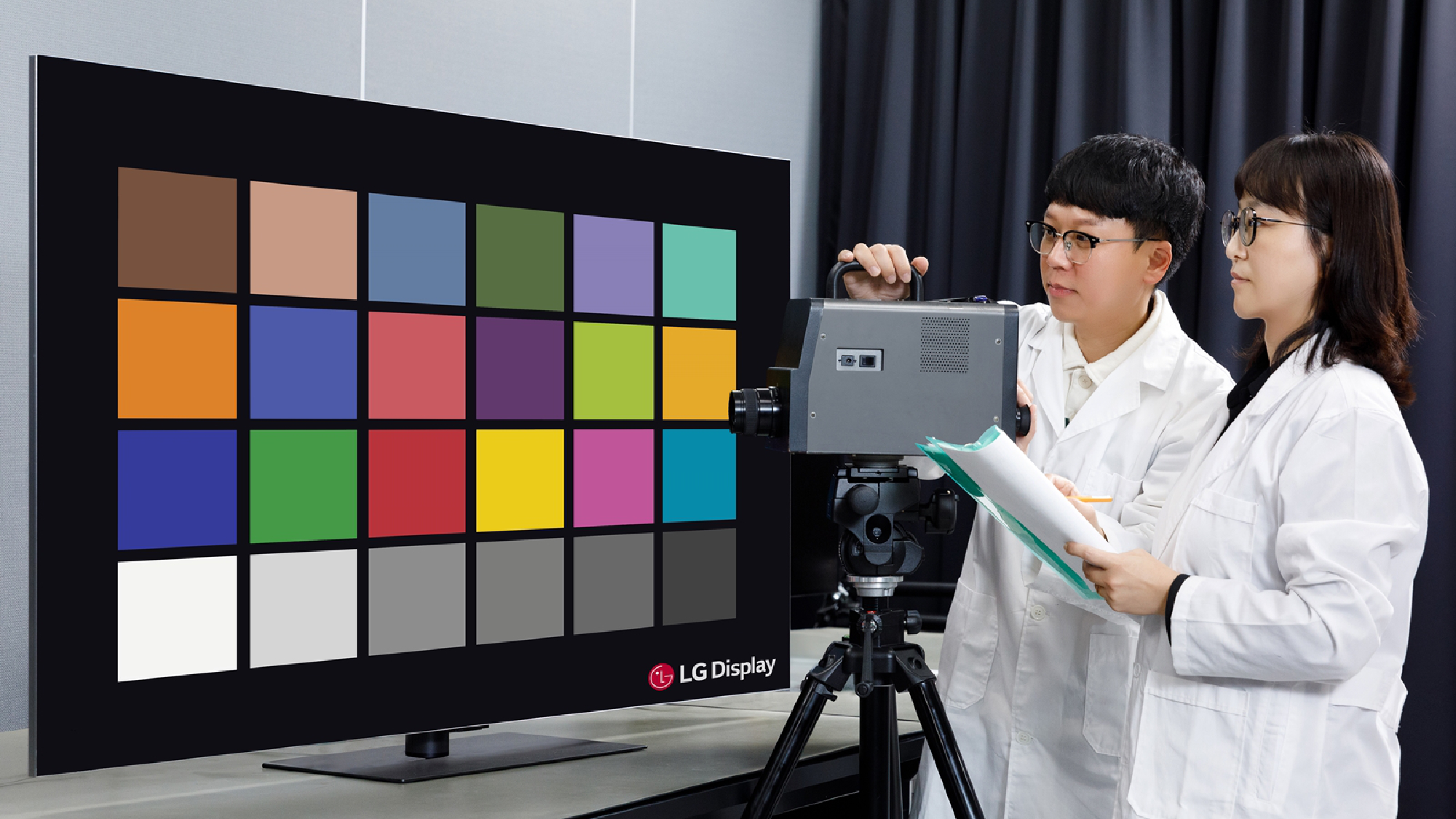
LG Display wants to change the way you see color or, well, at least develop a way to ensure that the color you perceive is the same one that everyone else sees. To do this it's developed its own internal “color perception difference measurement method,” which just got certified as a global standard by the International Electrotechnical Commission (IEC).
It announced the news in a blog post, highlighting how this new technical specification “calculates and quantifies the difference between the colors precisely measured by a machine for seven standard colors under lighting similar to natural light and the colors seen by humans with the naked eye.” The smaller this difference is, the more 'accurate' the color across viewers.
Why does any of that matter? Well, slight color variations can occur in myriad ways in your own living room depending on the time of day, type of content you’re watching, and even across the viewers present. If you have several color correction editors working on the same TV show or movie, you want to make sure each of them is seeing the same exact color hue when they're working.
Color perception differences

There’s a lot to be said about how we perceive color and it can come down to a multitude of different factors, including gender, genetics, age, memory, mood, and so much more. Even medications, illnesses, and altitude can have an effect on how we perceive colors. But when it comes to the best TVs, something as simple as a white screen can look different on the same display to two different individuals.
LG makes the claim that the best LG TVs are so well-constructed because they use an organic white light-emitting diode that emulates natural light. The new standards thus give its OLED TVs a 10% value of color perception difference, which is purportedly the lowest in the industry. Maybe that’s why it makes some of the best OLED TVs in the industry, but color of course isn’t the whole story.
LG Display gives this exact example in its blog post, noting that “even when looking at the same white, each person sees it differently, such as white mixed with blur or white mixed with yellow.” And for the longest time this variation, which to be fair is often quite slight, was never accurately represented in test results.
For the most part we use Delta-E to measure color accuracy on a display. It’s actually an interesting point to note, as the more recent LG B4 OLED TV sports a rather high Delta-E score of 4.8561. For content, the LG C3 OLED, arguably one of the best 65-inch TVs for its price, has a Delta-E of 1.3908, which means that it's one of the most accurate TVs right out of the box before any calibration is done to it.
A new color standard emerges
Between format names (HDR10+), display types (OLED) and screen technologies (WCG), there's no shortage of TV terminology. The good news is that this new Color Perception Difference Evaluation Method isn't likely to set the world on fire. It will, however, be a good tool for TV makers to ensure that colors are being produced as uniformly and accurately for as many viewers as possible.
Why do we see different colors? These differences are caused by the varied sensitivities inherent in photoreceptor cells, which can be seen in higher levels of individual red, green, and blue (RGB) pixels.
LG states that its OLED TVs “alleviate this phenomenon by implementing a spectrum of light close to natural light using white organic light-emitting diodes” and its new measurement metric is just one way it's looking to validate those claims.
While it’s still too early to tell just what its next lineup of TVs might look like in terms of performance, color accuracy, and the like, there is added emphasis here on color perception and it’s clearly thinking outside the box when it comes to how its TVs are presented in varied scenarios.
Will the LG C5 OLED and LG G5 OLED be the most color-accurate TVs we've ever seen? We'll just have to wait until their nearly inevitable announcement at CES 2025 to find out...







